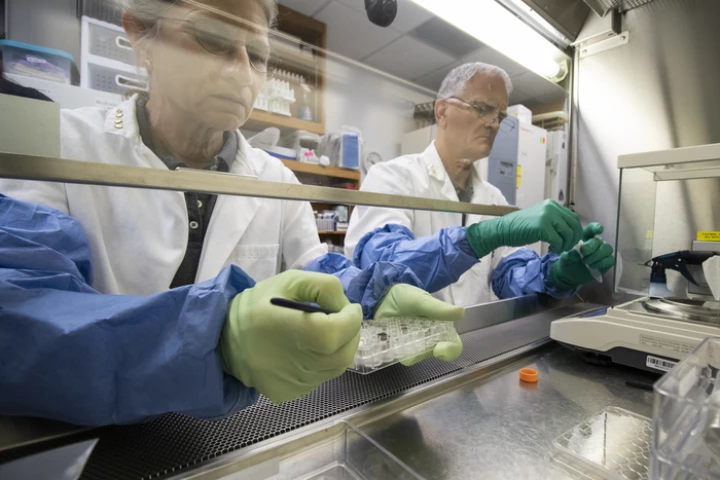University of Florida
-
The field of lunar agriculture has taken a step forward, with scientists reporting the first-ever plants grown in soil from the Moon, marking a significant milestone in the effort to sustain a lunar base and carry out missions into deep space.
-
Bold new research has plumbed the depths of poo-packed hippo pools and found they constitute a type of "meta-gut," in which microbes might be shared between the hippos to their benefit, kind of like a "probiotic shake."
-
If aeroplanes can refuel each other mid-air, then why not electric cars? What if EVs could share energy on the move? Could the whole traffic ecosystem become one giant battery dedicated to getting everyone where they're going without stopping?
-
Sea turtles are one example of a creature that regularly consumes plastic trash for dinner, and a new study offers up new answers as to why revealing that they can mistake the smell of plastic for food as part of an “olfactory trap.”
-
A cataclysmic collision between a pair of dead stars may have seeded our solar system with precious heavy metals including gold and uranium, according to a newly published study. If such an event were to be observed in the present day, it would be the brightest point in the night sky.
-
How the space environment impacts the human body is the source of much intrigue for scientists at NASA and beyond. A fascinating new study has sought to provide answers, uncovering some thought-provoking changes in the brains of astronauts before and after missions into space.
-
Toxic algae blooms can be nasty, killing fish, other wildlife and sometimes even people. One of the main causes of such blooms is excessive amounts of fertilizer running off of fields and into waterways. A new type of buried sensor, however, could help address that situation.
-
They might seem like boring rocks, but asteroids and meteorites have fascinating stories to tell about the history of the solar system. New research from the University of Florida has now traced back the origins of almost all asteroids in the inner belt to just five or six ancient minor planets.
-
Researchers at the University of Florida have developed a promising new gene therapy against multiple sclerosis (MS). Tested in mice, the treatment was effective in preventing the mouse equivalent of the disease, and almost completely reversed the symptoms in animals already suffering from it.
-
The bovine world's answer to Brangelina, the Brangus cow, is a desirable species bred through the 20th century that has proven resistant to heat and humidity. These traits have led scientists to study the Brangus as they look to engineer a new type of cow capable of withstanding a warming planet.
-
Ever wonder why a tomato plucked from Grandma's garden tastes so much better than one foraged from a supermarket produce aisle? The natural flavor-giving chemicals have been bred out of most modern tomatoes, but scientists are working to restore them.
-
You've probably never heard of huanglongbing – unless, of course, you're a citrus farmer. Then you'd know that it's another name for a blight caused by the Asian citrus psyllid. To fight it, researchers have decided to appeal to the bug's romantic side by playing males a very special sound.
Load More











